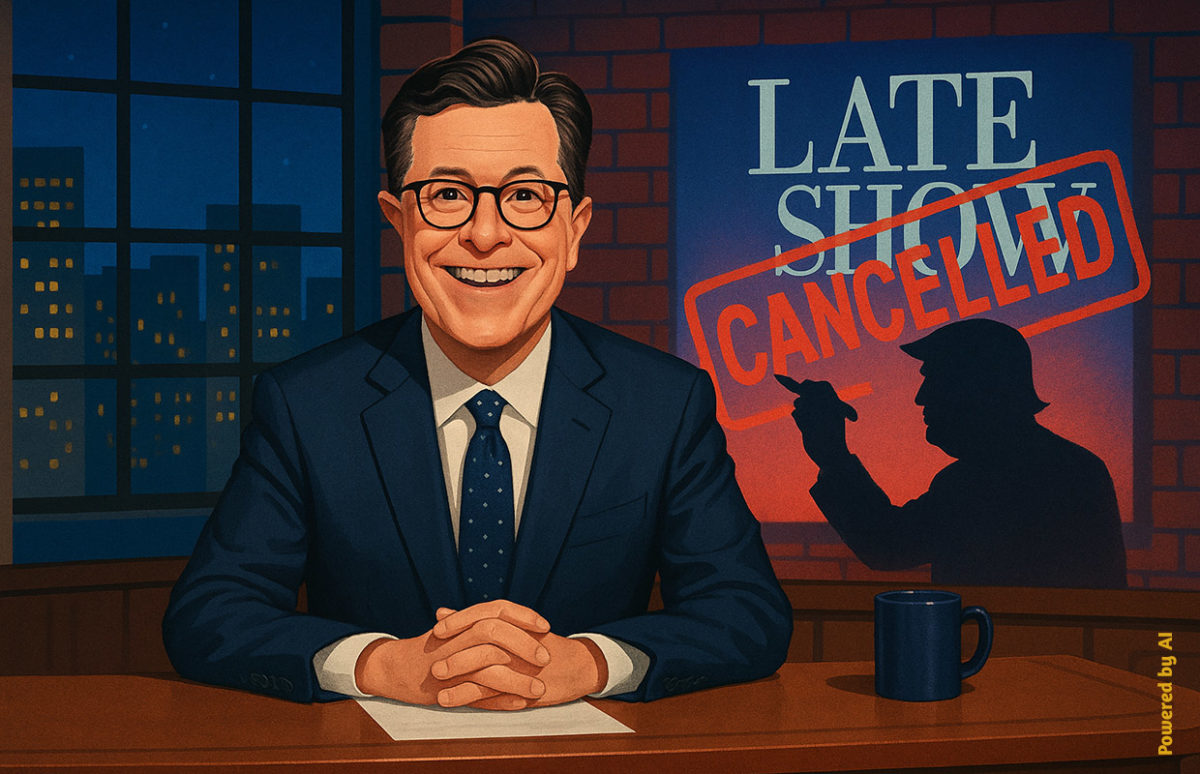Late-night comedy shows have been a fixture of American TV since the 1950s. A mix of satire, comedy, music and celebrity guests, they are known for their criticism of politics and those in the public eye. It came as a shock to audiences when Stephen Colbert, host of the long-running The Late Show, announced in July that CBS was going to stop the show in May 2026, despite it being top of the late-night ratings. There has been an outcry about free speech and possible political interference.
The Late Show has been running for 32 years, hosted first by David Letterman, and since 2015 by Colbert.
In a statement, the CBS television network said the choice to end the show when Colbert's contract runs out in May, "is purely a financial decision against a challenging backdrop in late night [television]" and "is not related in any way to the show's performance, content or other matters."
Colbert himself announced the cancellation at the live taping of the show.
Many of the elements that have become the mainstays of the late-night comedy shows were developed on Tonight Starring Steve Allen, which began in 1954 and is still going on NBC today as The Tonight Show Starring Jimmy Fallon. The shows generally start with a satirical monologue from the host, and then include some or all of celebrity interviews, comedy routines or sketches and music, from a house band and/or invited guests.
Most of the late-night comedy shows run Monday-Friday after 11 p.m. As well as The Late Show and The Tonight Show, the big hitters are The Daily Show (Comedy Central, which has had a rolling roster of hosts since Trevor Noah left), Late Night with Seth Meyers (NBC) and Jimmy Kimmel Live! (ABC). Last Week Tonight with John Oliver runs just on HBO on a Sunday evening.
Changing Media Landscape
Many reactions to The Late Show's cancellation pointed out that it is top of the late-night ratings. Yet CBS says it's losing $40 million a year. It is true that there has been a downward trend for years, with the late-night shows losing audience numbers, and therefore advertising revenue. Like a lot of television, the late-night shows are struggling to attract a younger audience to boost their viewing figures.
However the timing of the CBS announcement drew scrutiny. It came just a couple of weeks after Paramount, the CBS parent company, agreed to settle a court case with President Donald Trump. It agreed to pay $16 million to the future Trump Presidential Library after Trump sued CBS over the editing of an interview with his rival Kamala Harris during the 2024 election campaign. The President alleged last October that the network had deceptively edited an interview that aired on its 60 Minutes news programme, to "tip the scales in favour of the Democratic party."
This happened at the same time that Paramount is trying to merge with Skydance media, an $8 billion dollar deal which requires approval from the federal government.
Jon Stewart, who has worked with Stephen Colbert for over 30 years, voiced his doubts on his Comedy Central programme The Daily Show: “The fact that CBS didn’t try to save their No. 1 rated late-night franchise that’s been on the air for over three decades is part of what’s making everybody wonder … was this purely financial or maybe the path of least resistance for your $8 billion merger.”
Find more about how late-night comedy shows fit into the U.S. news landscape in Shine Bright AMC File 7 Media on screen.
Copyright(s) :
Universal Pictures
> U.S. Congress Tries to Ban TikTok
> Succession: Murdoch Media Empire
Tag(s) : "comedy" "news" "satire" "Shine Bright AMC" "Stephen Colbert" "The Late Show" "U.S. culture" "U.S. media" "U.S. politics" "U.S. TV"






